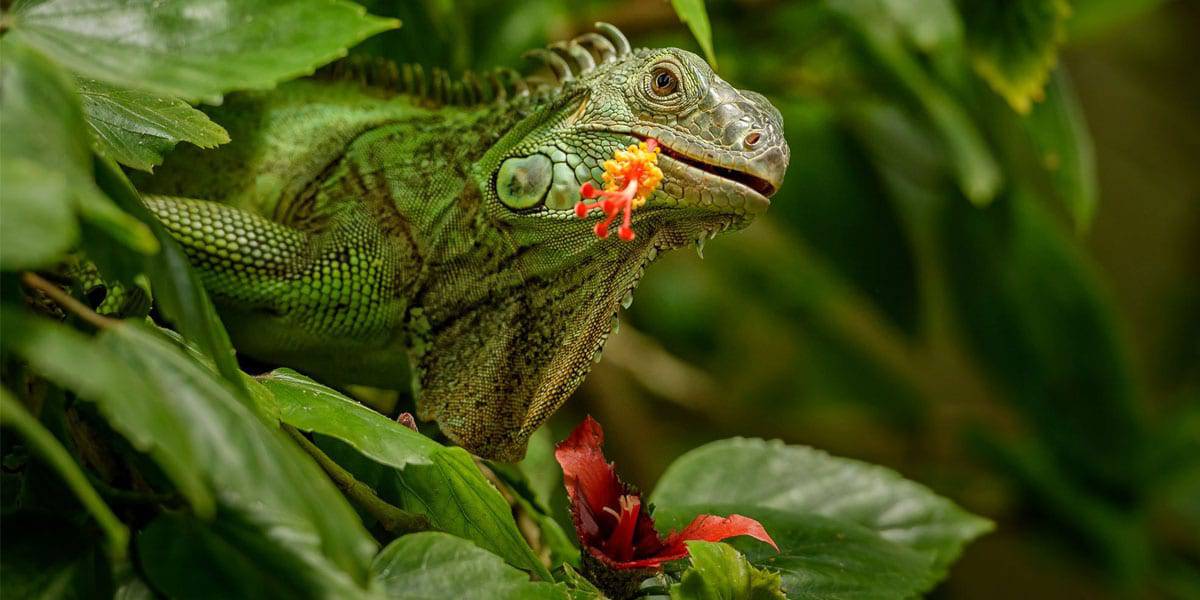Below is a list of plants which green iguanas have not consumed on any of the properties we maintain. Keep in mind, iguanas are extremely resourceful and adapt to changes in their environment very well. They can, and have, altered their diet to adjust for availability of certain food within a local ecosystem.
- Chenille
- Cordyline (Cordyline australis)
- Croton (Codiaeum Variegatum)
- Ixora (Ixora Taiwanensis)
- Lilyturf (Liriope muscari)
- Mexican Petunia (Ruellia Brittaniana)
- Oleander
- Purple Queen (Tradescantia Pallida)
- Silver Buttonwood (Conocarpus Erectus Sericeus)
- Society Garlic
These plants will give your property color and minimize damage from iguanas.
Green iguanas love Hibiscus, Bougainvillea, and Orchids (just to mention a few). We do not advocate aggressive removal of expensive plants but do suggest to selectively remove these temptations over time so that eventually they are not available to the iguanas. This can be done over the course of many months so that when you are finished, you have property which does not offer a free “all you can eat” buffet to iguanas.
These steps, along with our products and monitoring service, will reduce/eliminate destructive iguanas from your property.
Often people see croton damaged and blame the iguana. If the damage is in the form of a straight line, then it is not Iguana. Iguana, like all creatures with a curved bite, do not consume plant matter in a straight line; rather, they bite into the matter as you would a slice of pizza and leave the imprint of their curve. It is rare that Iguana consume croton but we have had some reports to this effect.


